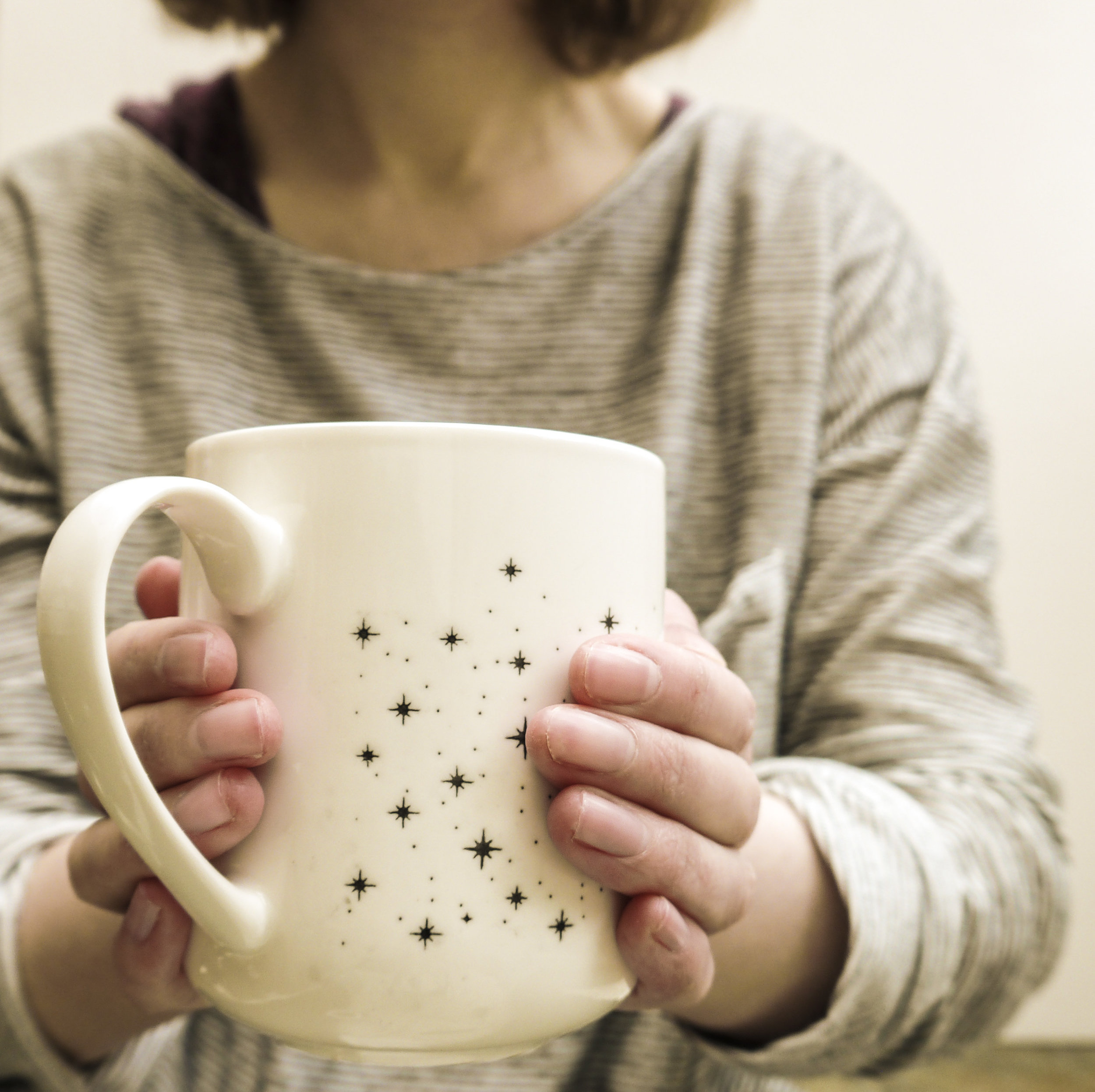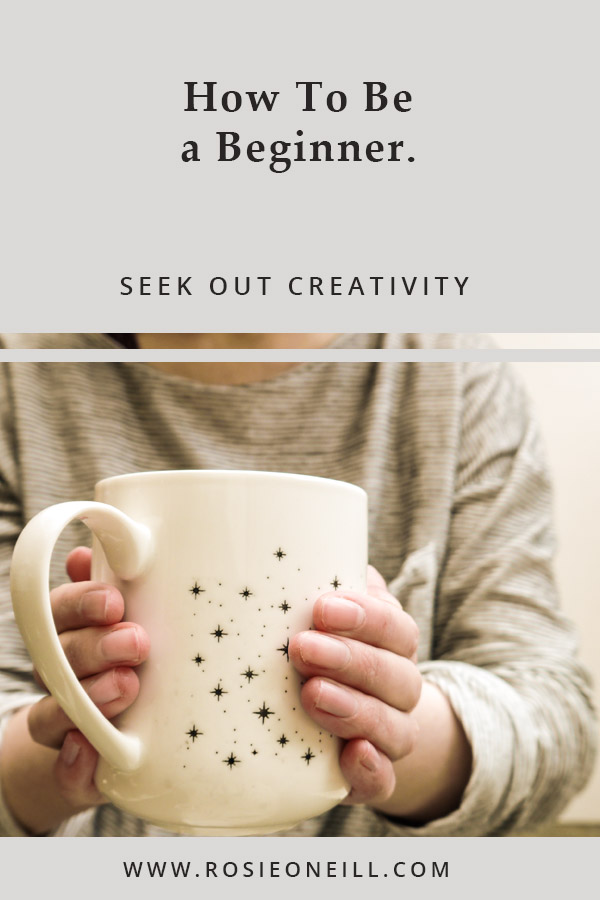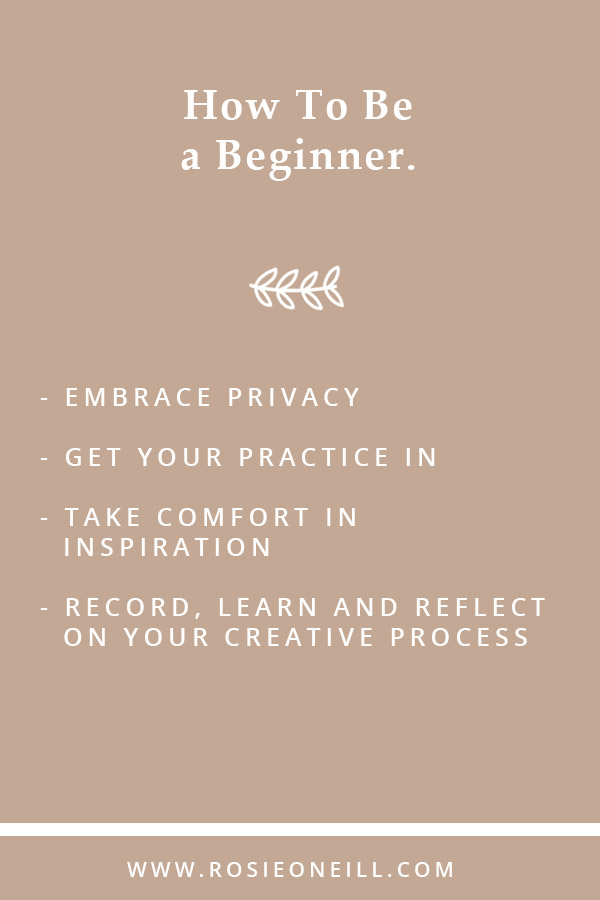HOW TO BE A BEGINNER.
It's a necessary part of any creative process, that we all must start somewhere, that we all must be a beginner. This feeling can fall somewhere between joyful discovery and faint discomfort, but often it's just plain frustrating. We want to be better than we are. We want to get the hang of something right away. It's perfectly natural.
However frustrating is it to be less than immediately brilliant at something, you have to want it more than that. You have to love it more than that. Loving the process of creating in a way that's separate to the art you're producing is a mindset shift that will have a long lasting impact on your creative journey.
Because however dramatically you improve and develop and grow as an artist (and you will, I promise), you never truly feel 'done'. Artistic growth and our expectation of it is something which shifts so rapidly that in order to stay on top of it - we simply have to find a way to set that expectation aside.
Self doubt and the inner critic will likely plague you however far along in your skill level you are. Finding ways to field that criticism internally, to rationalise it and manage it, will serve your creative process well into the future.
Keep it private.
Not showing anyone, not even telling anyone if that's what you need, can be a really useful way to allow yourself to be 'bad' at something.
It's one of the reasons I think writing has stuck with me for so long. Above any other medium, for me, it feels inherently private. It has the sense that until you declare it so - it's for your eyes, your heart, your soul only.
Of course, in order to grow and shine as artists, we must share our work at some point (read some tips about how to start, here), but keeping things private while you're finding your flow can be incredibly freeing.
Get your practise in.
Skills take practise, and a creative skill is no exception. You wouldn't expect to jump in a car for the first time and be an expert at driving right away, would you? There is no time limit, nothing that means you have to improve at a certain rate or be able to do something brilliantly when you're new at it.
With gentle, regular repetition; with research and learning; with a genuine interest in improving - you will.
Embrace inspiration.
Aspiring to, rather than comparing with, other artist's work is a helpful way to stay enthusiastic when you might feel you'll never make it past the beginner phase. Take comfort in the knowledge that others have come before you, that the talent you see in their work is largely a practised skill combined with a dedication to improve.
Learn about your process.
Start journaling, track your practise hours and moods, reflect on your progress. Recording your thoughts and shifting enthusiasm or self-criticism levels is the first step towards making a map of your creative process. Lots of us swing wildly between loving our art and despising it, and beginning to make sense of this emotional cycle will help you stay the course and take you from beginner to confident practitioner.
If you'd like to start thinking about this mapping process in more depth, sign up to my monthly newsletter for regular insights, encouragement and tips.
And above all of this - keep going. Just by starting something new and creative and challenging and terrifying - you've done so much more than so many people ever manage.
There are no shortcuts. The only way to get past the beginner phase of every new artistic skill is through, so take the time to enjoy it as just another part of the creative journey.
PIN FOR LATER:




